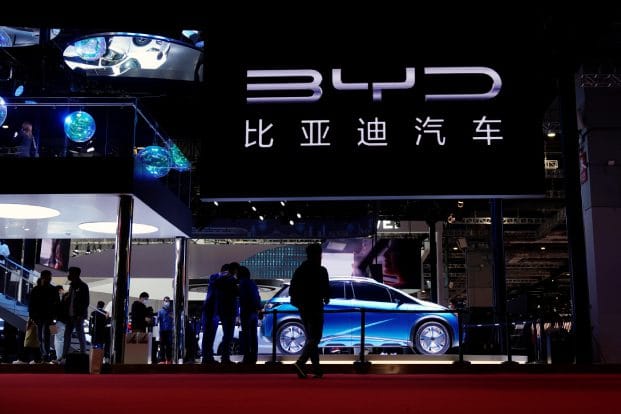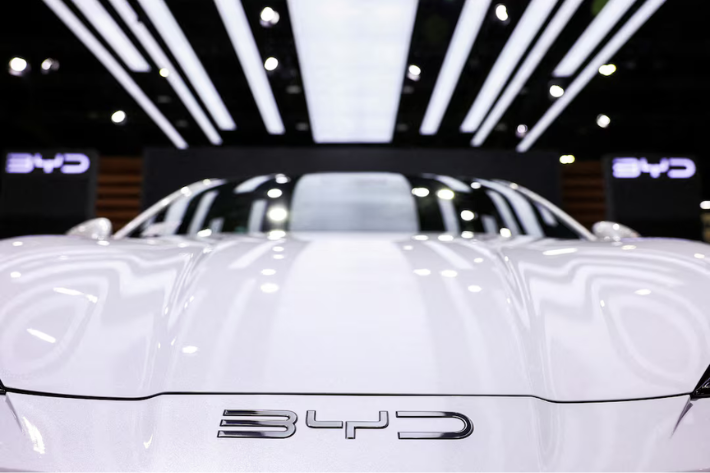China's BYD had a strong sales performance in November, selling more than 500,000 vehicles, thanks in part to Beijing's trade-in subsidy program.
China's largest electric vehicle maker has gained a bigger share of the global auto market and now looks on track to exceed its annual global sales target and overtake Ford and Honda.
BYD has been aggressively expanding this year, expanding production capacity and hiring heavily to boost revenue, surpassing electric vehicle leader Tesla in the third quarter.
See also: China's Jack Ma sees 'big changes' coming to Ant Group in AI era
Thanks to strong sales in China, BYD expects to hit its annual sales target of 4 million vehicles, which would put it ahead of Japan's Honda and Detroit's Ford in 2024.
The Chinese electric vehicle giant delivered 3.76 million vehicles in the first 11 months of this year, including 506,804 units sold in November.
BYD outpaced rivals after Chinese car sales posted their fastest year-on-year growth in November since January, driven by strong sales from a range of competitive models powered by the latest plug-in hybrid technology. Government-subsidized car trade-in Announced in July to boost consumer spending and EV adoption.
Official data shows that as of November 18, the total number of subsidized cars for trade-in exceeded 4 million. Without such trade-ins, year-to-date auto sales would likely have contracted, while sales in the January-November period would have increased 4.4%, according to a Reuters analysis based on industry data.
BYD's share of China's auto market rose to 17% as of last month from 12.5% in 2023, accounting for more than 90% of its total sales, according to the China Passenger Car Association (CPCA).
In contrast, Volkswagen's two joint ventures with SAIC and FAW Group Between January and November, the company's market share totaled 11%, compared with 14.2% last year.
Reuters estimates based on the automaker's existing sales that if this sales momentum continues, BYD may sell more than 6 million vehicles in the next 12 months, which would put it on par with leading global automaker groups such as General Motors and Stellantis. .
The Chinese company aims to deliver 5 million to 6 million vehicles by 2025, Citi analysts said in a report after a recent meeting with the automaker's management.
BYD did not respond to a request for comment.
A senior executive said in November that the automaker added nearly 200,000 new production capacity between August and October and hired 200,000 auto and parts manufacturing workers.
BYD had nearly 1 million employees as of September, up from about 703,500 at the end of 2023.
Its efforts to gain scale have helped it outpace rivals in growth, better control costs and win China's brutal price war that has squeezed many foreign automakers. BYD has also asked dozens of suppliers to cut prices, according to recent state media reports.
General Motors said last week it would take measures, the latest sign that foreign automakers are struggling in China. Its China operations collected more than $5 billion in fees The joint venture posted losses and sales fell due to restructuring and a decline in the value of the joint venture.
- Reuters Additional editing by Jim Pollard

















